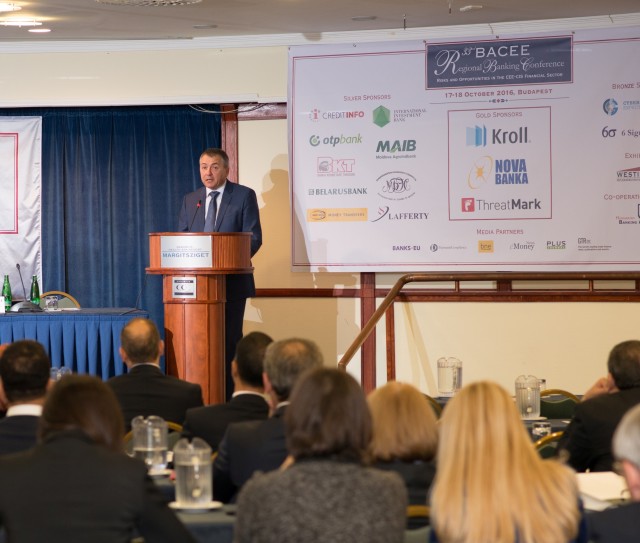At BACEE conference, IIB presented new opportunities for SME support in circumstances of changing requirements for European banking sector

The International Investment Bank (IIB) presented its vision of expanding credit support options for small and medium-sized enterprises in the context of the introduction of new requirements for risk management in European financial institutions under the planned transition to Basel III. The keynote speech opened the 33rd Regional Banking Conference of the Banking Association for Central and Eastern Europe (BACEE), held on October 17-18, 2016 in Budapest, Hungary. The forum was devoted to risk management and opportunities for the development of the financial sector in the countries of Central and Eastern Europe and the CIS.
The Basel Committee on Banking Supervision decided to prepare the Third Basel Accord (Basel III) following the global financial crisis of 2008, which revealed weaknesses in banking regulations. New regulations foresee the introduction, before the end of 2019, of additional requirements for banks’ capital adequacy, liquidity and debt to equity ratio. At the same time, lending to the sector of small and medium-sized businesses is referred to the category of riskier transactions and banks are required to create additional reserves.
The Director of the IIB European Regional Office (ERO), Igor Barat, talked about SME lending opportunities provided by the IFIs, including the Bank, which, in close cooperation with commercial banking organisations, are able to compensate the reduction of financing and the possible negative effect of stricter requirements towards borrowers. He mentioned a number of successful projects implemented by the IIB and related to the lending for small and medium-sized enterprises in the Bank’s member states, primarily in Russia, Mongolia, Romania, Bulgaria and Vietnam, with the participation of partner organisations such as the IFC, the EBRD, the FMO and the Bulgarian Development Bank.
I. Barat also pointed out IIB’s characteristics as a development institution that – contrary to the other financial organisations participating in the conference – does not focus predominantly on investing in a given country, but in equal measure takes into account the impact of the considered projects on the economic cooperation between its member countries and on their export potential. Participants expressed extensive interest towards the Bank’s trade finance practice, which was launched in 2015 with its total volume already exceeding EUR 18 million.
